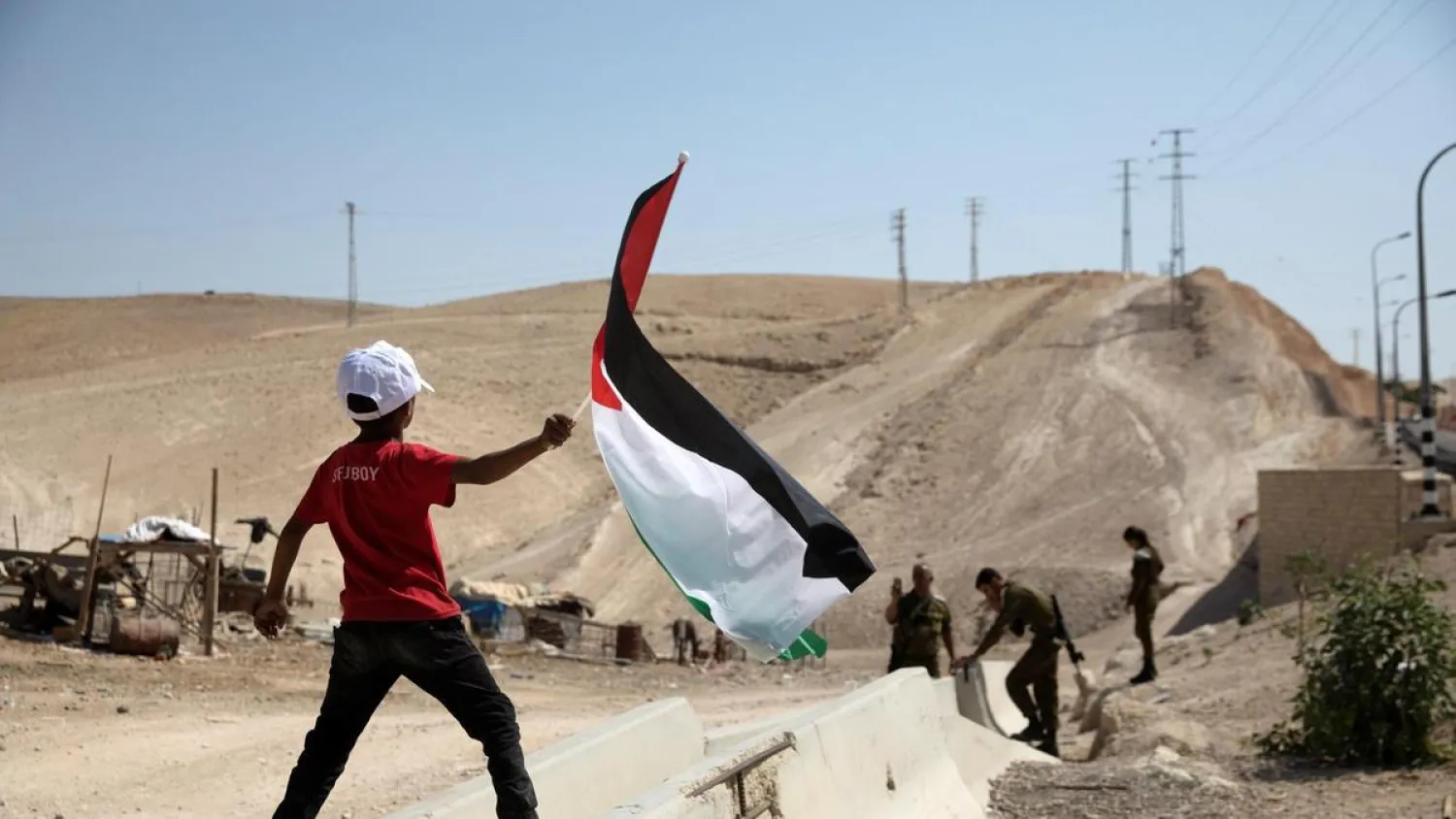An Israeli court ordered on Thursday the halt of demolition proceedings of a Bedouin village in the Israeli-occupied West Bank.
Khan al-Ahmar, which lies east of Jerusalem at a site whose fate has become a focus of protests and international concern, was quiet early on Friday after two days of clashes between activists and Israeli security forces.
A Supreme Court injunction was issued on Thursday evening granting a temporary writ “barring the implementation of the demolition orders” for structures that the Israeli military had planned to tear down.
The injunction had been sought by lawyers for the villagers, who filed it late on Thursday after two days of protests following the arrival of bulldozers.
The court gave the state until July 11 to respond to the villagers’ contention that they had been unfairly denied building permits.
A spokeswoman for Israel’s Justice Ministry had no immediate comment on when or how the state would respond.
The village of tin and wood shacks is home to around 180 Bedouin who raise sheep and goats on a parched hillside on the road from Jerusalem to Jericho, with the red rooftops and greenery of Israeli settlements visible from nearby hilltops.
Attorney Shlomo Lecker, representing villagers, told AFP that the respite followed a new petition by residents who submitted a planning application to rebuild the village at its present location.
There has been strong international pressure on Israel to reverse its plans to raze Khan al-Ahmar, which the Israeli authorities say was built illegally.
In May, the Supreme Court rejected a final appeal against its demolition.
Activists say the villagers had little alternative but to build without Israeli construction permits that are almost never issued to Palestinians in the parts of the West Bank where Israel has full control over civilian affairs.
Diplomats from Belgium, Finland, France, Ireland, Italy, Spain, Switzerland and the European Union tried Thursday to visit Khan al-Ahmar's school, which is funded by several European countries, but they were turned back at the village entrance.
The consul general of France in Jerusalem, Pierre Cochard, told journalists at the scene that demolishing the village of 173 residents would be a violation of the Geneva convention which lays out the obligations of an occupying power toward those under its control.
It would also significantly complicate the search for a two-state solution to the Israeli-Palestinian conflict, he added.
Human rights groups say that removing the Bedouin would create a bigger settlement pocket east of Jerusalem, dividing the West Bank into two parts and making it difficult for Palestinians to achieve territorial contiguity for the state that they seek in the West Bank, East Jerusalem and the Gaza Strip.
On Friday, hundreds of activists and residents held a prayer and a demonstration in the village, carrying Palestinian flags and chanting against the Israeli occupation.
“The mood is better, people are less stressed, but we are still worried,” said Mahmoud Abu Dahouk, 51, who was born in the village.
“We are going to continue sitting here, but the real fact is that the Israeli occupation has targeted this village as part of its project for this area, so they are going to seize it and destroy it any way possible.”
The army had said on Thursday that the process of enforcing eviction and demolition orders was under way, but did not give a date when the buildings would be razed.
The UN's humanitarian coordinator for the Palestinian territories, Jamie McGoldrick, has condemned the move.
"These demolitions are particularly outrageous because they target communities who already live in extremely difficult conditions, with high levels of humanitarian needs," he said.









